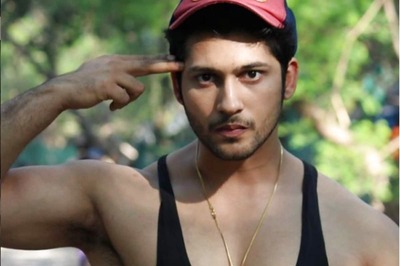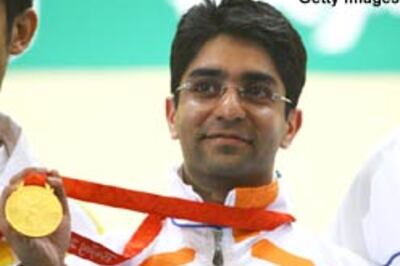
views
At 46, Tabu is as relevant as she was 22 years ago when her poignant Veeran in Gulzar’s 1996 film Maachis made an entire nation sit up and reflect within.
In an industry that has 52-year-old heroes romance 24-year-old girls, that pigeonholes its female actors into being onscreen mothers way before they get their first wrinkle, Tabu has stood her own ground and how.
AndhaDhun — Sriram Raghavan’s latest thriller which released last Friday to rave reviews — belongs much more to her than it does to Ayushmann Khurrana, around whose character it revolves.
Note: There are spoilers ahead. You can return to this after watching the film.
In AndhaDhun, though Khurrana impresses as Akash, a victim of circumstances, his character is mostly unidirectional. It is Tabu’s Simi, the cheating wife of a has-been star, that gives the film much of its razor-sharp thrill. At once she is a seductress, an aspiring actor, a step-mother and an accomplice in a crime who is determined to get rid of all evidence that might give her away. Though she is AndhaDhun’s primary antagonist, it is difficult to hate her. Despite her Simi being deeply flawed, Tabu’s earnest, honest portrayal makes her almost human.
However, Tabu’s casting or her terrific performance in AndhaDhun is hardly surprising considering her diverse, prolific filmography spanning over 25 years.
Even about two decades ago, at a time when female actors tired hard to keep up their good looks and goody two-shoes image, starring only in films in which they are cast as the lead, Tabu defied convention without even trying.
She played supporting roles in several films, including Jeet (1996), Border (1997), Biwi No. 1 (1999) and Hum Saath Saath Hain (1999). Commercial potboilers, all of them were major blockbusters. Though her screen time in these films was less, her impact certainly wasn’t. Be it Biwi No. 1’s very Punjabi Lovely or Hum Saath Saath Hain’s simple, dutiful Sadhana, Tabu wasn’t just noticed, she was loved.
In fact, even in the films that have her as the lead, Tabu has effortlessly played women other female actors found too problematic. She was the wife who begets a child from another man in Mahesh Manjrekar’s Astitva (2000). In Madhur Bhandarkar’s Chandni Bar (2001), she played a bar dancer, an infertile woman in Meghna Gulzar’s Filhaal…(2002), an adulterous wife in Vishal Bhardwaj’s Maqbool (2003), a middle-aged woman in love with a man older than her father in R. Balki’s Cheeni Kum (2007) and a half-widow in a sexual relationship with her brother-in-law in Bhardwaj’s Haider (2014).
Tabu’s women have rarely been easy, but they have always been real. Even in a film as unwatchable as Abhishek Kapoor’s 2016 dud Fitoor, in which she plays the dramatic Indian version of Charles Dickens’ Miss Havisham from his classic Great Expectations, Tabu shines.
The vast, undefined expanse that lies between black and white, right and wrong, yes and no, that is arguably the most difficult to navigate, leave alone translate convincingly on screen — that is Tabu’s home turf, where she rules, unmatched, invincible.
Bollywood is unashamedly ageist. And sexist. And yet, we have Tabu — striving, thriving and wowing audiences as gloriously as always.
Follow @sneha_bengani for more.



















Comments
0 comment